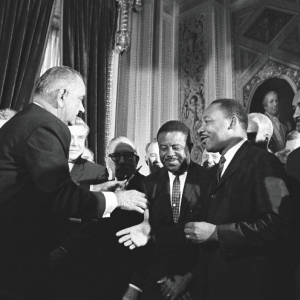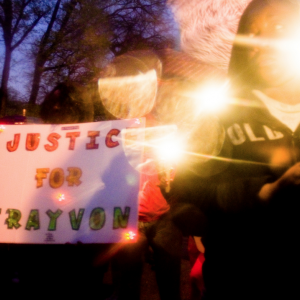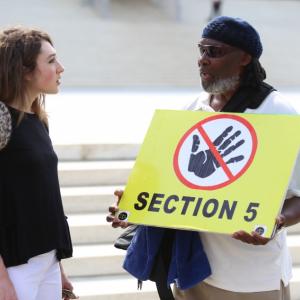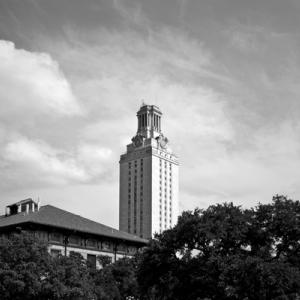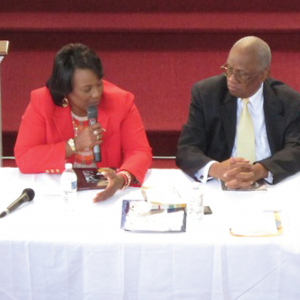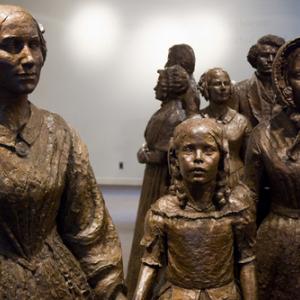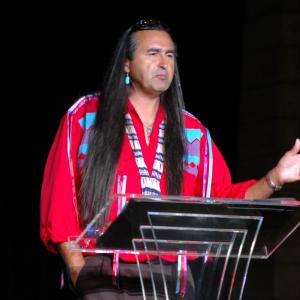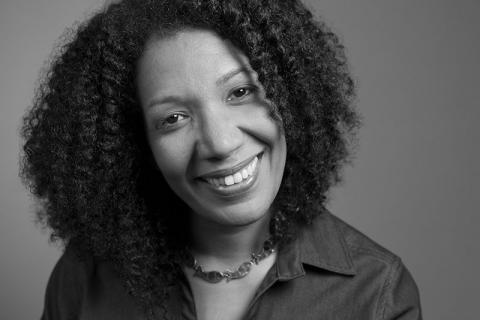
Lisa Sharon Harper, a former Sojourners columnist, is the founder and president of Freedom Road and author of Fortune and The Very Good Gospel. You can follow her work at lisasharonharper.com.
Posts By This Author
A Prayer for Marissa Alexander
Jesus, please be with Marissa Alexander today.
You know Marissa, the 32-year-old mother who fired a warning shot in the air to ward off her then-husband who was threatening to abuse her. You know that she tried to claim stand your ground and was denied by State Attorney Angela Corey who said Alexander fired her shot out of anger, not fear. You know that Corey’s office prosecuted George Zimmerman and did not block Zimmerman’s lawyers from embedding the language of the stand your ground statute in his jury’s instructions. You know that Zimmerman was declared not guilty based on that language, while Alexander was sentenced to 20 years in prison because of 10- to-20-year mandatory minimum sentencing requirements in Florida.
Fast for Families: A Call for Immigration Reform and Citizenship
(Editors Note: Faith, immigrant rights, and labor leaders launched the "Fast for Families: A Call for Immigration Reform and Citizenship," Nov. 12, taking place on the National Mall. Leaders and immigrant members of the community are fasting every day and night, abstaining from all food — except water — to move the hearts of members of Congress to pass immigration reform with a path to citizenship. This post is composed of updates from Lisa Sharon Harper, director of mobilizing for Sojourners, as she experiences the fast.)
Eleven national leaders marked this as the first day of a 30-day rolling fast for families — a call for immigration reform and a path to citizenship. The fasters and other leaders of the civil rights movement, including Julian Bond (civil rights veteran), Rev. Jim Wallis (Sojourners) and Wade Henderson (Leadership Conference on Civil Rights), walked into that tent and behind the podium.
One after another, the fasters stood before the podium — Sister Simone Campbell, Dr. Barbara Williams-Skinner, Eliseo Medina, Dae Joong Yoon—and offered testimony. This is why we are fasting. We are fasting because we cannot wait any longer. We are fasting because we stand with the 11 million people and their families who cannot wait for congress to get itself together for the pain and suffering in their families to end. We are fasting because whether we are immigrants who came here voluntarily in the last century or our ancestors were brought here in chains 200 years ago, we are fasting America a better place for all.
A Protocol of Respect
AT THE URBANA student missions conference in December 2000, three Indigenous leaders who are also evangelicals were introduced to key members of the leadership of InterVarsity Christian Fellowship. Richard Twiss (Rosebud Lakota/Sioux), Terry LeBlanc (Mi’kmaq), and Ray Aldred (Swan River Cree) sat down with InterVarsity leaders and began to share their stories. InterVarsity leaders started to ask questions about culture and faith and evangelism and contextualization.
Soon they found that these leaders had a fresh word for the entire movement in its struggle to become a racially reconciling movement. Other elders joined the three: Randy Woodley, Bryan Brightcloud, Cheryl Bear-Barnetson, and Melanie McCoy. In the course of a series of conversations, the question of land use and protocol came up.
The elders explained: All cultures, including Indigenous cultures, have protocols—particular ways of doing things. Some of the most significant protocols in Indigenous cultures are connected to the use of land. The InterVarsity staff adopted the posture of students and, in humility, submitted to the teachings of these elders of several nations that were on this land thousands of years before Europeans ever “discovered” it.
The elders called their attention to Acts 17:26-27: “From one ancestor he made all nations to inhabit the whole Earth, and he allotted the times of their existence and the boundaries of the places where they would live, so that they would search for God and perhaps grope for him and find him—though indeed he is not far from each one of us.”
Grief, Courage, and Perseverance
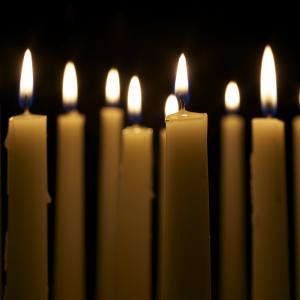
swatchandsoda / Shutterstock
[Editor's note: This article first appeared in our December 2013 issue to commemorate the one year anniversary of the Sandy Hook shooting.]
IN THE YEAR since the mass shooting at Sandy Hook Elementary School in Newtown, Conn., last Dec. 14, thousands more have died by gun violence, and the NRA seems to stymie sane firearm measures at every turn. How do we stave off despair, hold on to hope, and keep moving forward when the odds feel overwhelming? —The Editors
Bigger Than Politics
What do we say to those who are weary?
by Brian Doyle
WHAT WOULD I SAY to those who are weary of assault rifles mowing down children of all ages, every few months, for as long as we can remember now? Oregon Colorado Wisconsin Pennsylvania Connecticut Texas Massachusetts Minnesota Virginia do I need to go on? I would say that this is bigger than politics. I would say this is about money. I would say Isn’t it interesting that we are the biggest weapons exporter on the planet? I would say that we lie when we say children are the most important things in our society. I would say that the next time a tall oily smarmy confident beautifully suited beautifully coiffed glowing candidate for office says the words family values, someone tosses an assault rifle on the stage with a small note attached to it that reads Is this more important than a kindergarten kid?
We all are Dawn and Mary in our hearts and why we wait until hell and horror are in front of us to unleash our glorious wild defiant courage is a mystery to me.
I would also say, quietly, that this is bigger than rage and anger and snarling at idiots who pretend to hide behind the Constitution. I would say this is also about poor twisted lonely lost bent young men no one paid attention to, no one really cared about. And I would say that people like Dawn Hochsprung and Mary Scherlach, who ran right at the bent twisted kid with the rifle in Newtown, are the flash of hope and genius here. Those are the people I will celebrate on Dec. 14. There are a lot of people like Dawn Hochsprung and Mary Scherlach, may they rest in peace. We all are Dawn and Mary in our hearts and why we wait until hell and horror are in front of us to unleash our glorious wild defiant courage is a mystery to me. But it’s there. And there are a lot of days when I think the whole essence of Christianity, the actual real no kidding reason the skinny Jewish man sparked the most stunning possible revolution in history, is to gently insistently relentlessly edge us away from our savagely violent past into a future where Dawn and Mary are who we are, and you visit guns in museums, and war is a joke, and defiant peace is what we say to each other all blessed day long.
Brian Doyle is the editor of Portland Magazine at the University of Portland (Oregon) and the author most recently of The Thorny Grace of It, a collection of spiritual essays.
-----
An Insanity of Rationality
This spiritual disease thrives on violence and calls it good.
by Joan Chittister, OSB
THERE IS A MADNESS abroad in the land, hiding behind the Constitution, brazenly ignoring the suffering of many who, over the years, have died in its defense, and operating under the banner of rationality. It’s a rare form of spiritual disease that thrives on violence and calls it good.
They want a proper response to violence, they tell us, and, most interesting of all, they insist that only violence can control violence. If “the good guys” have guns, this argument goes, “the bad guys” won’t be able to do any harm.
The hope? The hope lies only in those who refuse to feed this addiction to violence.
This particular insanity of rationality argues that violence is an antidote to violence. Then why do we find scant proof of that anywhere? Why, for instance, hasn’t it worked in Syria, we might ask. And where was the good of it in Iraq, the land of our own misadventures, where the weapons of mass destruction we went to disarm did not even exist and the people who died in the crossfire of that insanity had not harbored bin Laden. So how much peace through violencehave all the good guys on all sides really achieved?
The insanity of rationality says it is only reasonable to arm a population to defend itself against itself. And so, day after day, the level of violence rises around us as hunting rifles and small pistols turn into larger and larger weapons of our private little wars.
Clearly this particular piece of childish logic has yet to quell the gang violence in Chicago. It didn’t even work on an army base in Texas where, we must assume, the place was loaded with legal weapons.
What’s more, it does nothing to save the lives of the good guy’s children, who pick up the good guy’s guns at the age of 2 and 3 and 4 years old and turn them on the good guy fathers who own them.
So the mayhem only increases while white men in business suits insist that their civil rights have been impugned, their right to defend themselves has been taken from them, and more guns, larger guns, insanely damaging guns are the answer. Instead of hiring more police officers, they argue that arming students and teachers themselves, nonprofessionals, will do more to maintain calm and control the damage in situations specifically designed to cause chaos than waiting for security personnel would do.
It is that kind of creeping irrationality that threatens us all.
And in the end, it is a sad commentary on our society. We have now become the most violent country in the world while our industries collapse, our educational system declines, women are denied healthcare, our infrastructure is falling apart, and there’s more money to be made selling drugs in this country than in teaching school. No wonder gun pushers fear for their lives and sell the drug that promises the security it cannot possibly give while the country is becoming more desperate for peace and security by the day.
The hope? The hope lies only in those who refuse to feed this addiction to violence. These are they who remember again that we follow the one who said “Peter, put away your sword” when it was his own life that was at stake.
The hope is you and me. Or not.
Joan Chittister, OSB, a Sojourners contributing editor, is executive director of Benetvision, author of 47 books, and co-chair of the Global Peace Initiative of Women.
The Budget and Your Neighbor
Gov. John R. Kasich (R-Ohio) did a shocking thing recently. He broke with his political allies and decided to expand Medicaid to 275,000 poor people in his state through the Affordable Care Act. Then he called a spade a spade, saying: “I’m concerned about the fact there seems to be a war on the poor.”
Kasich’s statement came just two days ago. And today, 47 million low-income Americans will see their food stamps benefits decrease as stimulus funding ends. In light of this newly named “war on the poor,” I’ve been reflecting on Jesus’ story of the Good Samaritan, and the man’s question to Jesus, “Who is my neighbor?” What an intriguing question.
Of course one of the most incredible things about this story is that Jesus never answers the lawyer’s question. Rather, he tells a story about a man beaten by robbers on a dangerous road. He was stripped naked left lying there, clinging to life. Both a priest and Levite pass him by, but a Samaritan went out of his way, broke his usual routine, used up his own gas (or at least his donkey’s energy) to bring the man to an inn. And he took care of him overnight at the inn, offering the innkeeper what would today be about $330.
And then Jesus flips the script! The lawyer asked who exactly is my neighbor? Who do I have to love? And conversely who can I cross off my need-to-love list?
Jesus doesn’t answer the question. Jesus returns his question with a question: “Who was a neighbor to the man who fell into the hands of robbers?”
Nowadays we hardly have a concept of what it means to be a neighbor anymore.
The 'S' Word, the 'D' Word, and '12 Years a Slave'
I once spoke to a writing class at a respected evangelical university on the Good Samaritan, a basic message about God’s call to love everyone. In the course of my hour-long lecture, I mentioned the word “slavery” once. One time.
That one mention was met with this one question during the Q-and-A time: “What does slavery have to do with anything?”
The young evangelical proceeded to tell me, “slavery only lasted about 50 years and it wasn’t even that bad. I mean they were better off because of it, right? They got Christianity, didn’t they?”
I learned a survival lesson on that day: Don’t even mention the “s” word to white people. It’s not safe.
But last week, at Sojourners’ Special Faith Leaders’ Screening of 12 Years a Slave, Dr. Barbara Williams-Skinner said something profound during the post-screening panel discussion of the film:
“White people don’t want to talk about what happened,” Williams-Skinner said. “We need racial reconciliation in our nation and in the church, but reconciliation requires repentance and how can we get to repentance, if we can’t even have the conversation?”
We do need racial healing. Our nation needs it desperately.
Education as an Exercise in Dominion
I remember the first time I ever got straight A’s. It was also the last time.
I was in Mrs. Becker’s 4th grade class at John Story Jenks School in Philadelphia. I was always good at reading, I LOVED science projects, and art class was fun — but math? Ugh. Math was my nemesis. In 4thgrade the times tables felt as insurmountable as that dang rope everybody else could whiz up and down in gym class. I just couldn’t figure it out. In fact, to this day, I haven’t figured the rope.
So, my father became my times tables drill sergeant and resorted to straight memorization tactics, making me write each one 10 times. Then he sat across from me at the dining room table and drilled me on the times tables until I said them in my sleep. It was brutal … and oddly, one of the fondest memories of my elementary school years. Not only did I master multiplication, but I also learned something much more important. When my report card came back that quarter with straight A’s, I learned that I could learn!
Shalom and Gender Justice
Two things are clear in both creation stories: 1) both men and women are created to exercise equal dominion, and 2) according to Genesis 1:31, this relationship between men and women was “very good.” This is what right relationship between men and women looks like. It is only after the fall of humanity — when we decided not to trust God’s ways, when we decided to grab at our own way to peace and gratification — that women were subjected to men. And I see nothing in the text that says this is the way God wanted it. Rather, I see this is the natural result of choosing to exercise a human kind of dominion rather than one that reflects the image of God. Humanity grabs at its own peace at the expense of the peace of all.
50 Years Later: The Call to Let Freedom Ring!
Even with the scores of marches on Washington since 1963, we all still know what we mean when we say the March on Washington.
In our collective memory, we see black-and-white images of immaculately dressed men and women wearing hats, ties, and dresses, marching in dress shoes. We see a sea of people stretching from the Lincoln Memorial to the Washington Monument. And we see Dr. Martin Luther King, Jr., frozen in time, smiling and waving to the crowd of a quarter million people. We see King’s passion, mouth open as he bellows words that sear the conscience of a nation and ignite its imagination. His arm is outstretched over the podium. He is surrounded by men and women who are also there to plead with a nation to “let freedom ring!”
These images are seared into our nation’s memory, even though most of us were not there.
Race Wars and Mustard Seeds
This year marks the 150th anniversary of both the issuing of Emancipation Proclamation and the battle of Gettysburg. This month marks the 50th anniversary of the historic March on Washington and Dr. Martin Luther King, Jr.’s “I Have a Dream” speech. All three moments marked major turning points in the fundamental American struggle to actualize the divine dream of life, liberty, and equality for all. That dream has been especially powerful through the struggle for African-American freedom.
From a biblical perspective, American slavery and Jim Crow segregation not only subjugated the body. For about 300 years, from Virginia’s first race-based slave laws in the 1660s to the passage of the Voting Rights Act in 1965, the legal binding of black hands, feet, and mouths also bound spirits and souls. Both slavery and Jim Crow laws denied the dignity of human beings made in the image of God and forbade them from obeying God’s command to exercise Genesis 1:28 “dominion” — in today’s terms, human agency.
So, the Emancipation Proclamation and passage of the 13th, 14th, and 15th Amendments were cause for jubilee worship in black churches and among other abolitionists. Likewise when the Civil Rights Act passed in 1964 and the Voting Rights Act passed in 1965, churches across the nation erupted again in worshipful jubilee.
Now, nearly 50 years after the second American jubilee, African Americans are being stripped of dignity and constitutionally protected freedoms like we have not seen since Jim Crow.
'Fighting Words' from the Supreme Court
BACK IN THE day, when Stevie Wonder was Wishing “those days could come back once more,” my 6-, 7-, and 8-year-old friends and I had no idea what the heck he was talking about, but we loved the groove and would blast Wonder’s Songs in the Key of Life album from our front steps as we played in front of my house in our West Oak Lane neighborhood of Philadelphia.
Sometimes the boys would coast down the street on handmade skateboards, literally made of old skates—the kind with wheels you strapped to your shoes—nailed to short wooden planks. Sometimes the girls and boys would race each other down a steep street, flying at lightning speed on bikes and boards, to see who could make it first to the candy shop at the bottom of the hill. And sometimes, in all the play, a verbal sparring match would break out:
“You so big,” one friend would say, “it take two showerheads to clean yo big butt in the morning!” Then the 7-year-old sparring partner would come back: “Oh, yeah?! You so ugly, yo mama say ‘What dat?’ when she give birth to you!”
It would keep going and we’d all laugh out loud until someone got inappropriate. Usually inappropriateness began with three words: “Yo mama so ...” We all knew to never bring someone’s mother into the sparring match unless you wanted to fight for real. Those were fighting words.
This summer the Supreme Court got inappropriate. They spewed fighting words on the playground that is our national public square.
The Zimmerman Verdict and the Resurrection of the Old Jim Crow
The acquittal of a person who is not black for the murder or beating of a black person is nothing new: Remember Yusef Hawkins. Remember Rodney King. Remember Amadu Diallo. Remember Alex Moore. Remember Latasha Harlins. Remember Sean Bell. Remember… remember… remember.
Many of us can recall these names without much effort. So, why is the death of Trayvon Martin so different?
It’s different because of the law — and the timing.
Creation is Groaning
In his letter to the Romans, the apostle Paul writes: “I consider that the sufferings of this present time are not worth comparing with the glory about to be revealed to us. For the creation waits with eager longing for the revealing of the children of God …” (Romans 8:18-19)
And who are God’s children in the immediate context? Paul explains the “children of God” are those whose spirits cry “father” when referring to God. “For,” according to Paul, “all who are led by the Spirit of God are children of God.” (Romans 8:14) If this is true, then why is creation longing for the children of God (those led by God’s Spirit) to be revealed?
In Genesis 1, the author writes, “God saw everything that he had made, and indeed, it was very good.” The Hebrew words for “very good” are mehode tobe. Mehode means “forcefully” and in the Hebrew context tobedoes not necessarily refer to the object itself. Rather it refers to the ties between things. So, when God looked around at the end of the sixth day and said, “This is very good,” God was saying the relationships between all parts of creation were “forcefully good.” The relationship between humanity and God, men and women, within families, between us and the systems that govern us, and the relationship between humanity and the rest of creation — the land, the sea, and sky and all the animals and vegetation God created to dwell in those domains—all of these relationships were forcefully good!
Watch the Vote: Supreme Court Effectively Kills Voting Rights Act
Today is a dark day in our nation’s history. In a 5-4 ruling, the Supreme Court ruled in the case of Shelby County, Alabama v. Holder that Section 4 of the Voting Rights Act is unconstitutional, rendering the 48-year-old legislation impotent to protect citizens from voter suppression. Section 4 lists the states that must obtain “preclearance” from the Department of Justice before instituting changes to their voter laws. In her dissenting opinion, Justice Ruth Bader Ginsburg, said: “Throwing out preclearance when it has worked and is continuing to work to stop discriminatory changes is like throwing away your umbrella in a rainstorm because you are not getting wet.”
Only 48 years ago, on March 7, 1965, men, women, and children absorbed blasts of water, bone-crushing blows from police batons, and profound humiliation as Selma, Ala., police dragged limp black bodies over concrete on the far side of the Edmund Pettus Bridge. They had assembled on that day, which came to be known as “Bloody Sunday,” to march from Selma to Montgomery in protest of voter suppression and intimidation that had plagued the entire South. Ten days later, President Lyndon B. Johnson sent the Voting Rights Act to Congress. The bill passed in the Senate on May 26 by a vote of 77 – 19 and passed in the House on July 9 of that year. President Johnson signed the Act into law with Dr. Martin Luther King, Rosa Parks, and others present on August 6.
Flash forward to Fall 2012. I launched a blog series called “Watch the Vote” because, as of August 2012, 30 states had introduced legislation or enacted laws to hinder voters’ access to voting over the previous year. The Fair Elections Legal Network crafted this map to chart the spread of legal voter suppression initiatives across the nation. Notice, Alabama is one of the states that has recently passed voter restriction law that has not been precleared by the Department of Justice. Its new law, requiring photo ID and proof of citizenship, was set to take effect in 2014 before the Supreme Court ruled last week that Arizona’s voter ID law, which Alabama used as a model for its own, is unconstitutional.
Jesus and Affirmative Action
In a vote of 7-1 on Monday, the Supreme Court sent an affirmative action case, Fisher v. University of Texas, back to the lower court for a re-hearing, while reaffirming the benefits of diversity in institutions of higher learning and authorizing the continued use of race as one factor in admissions. By sending the case back to determine if the University of Texas could find no “available, workable race-neutral” alternatives available to them, Justice Ruth Bader Ginsberg explained the court did not issue a strong enough support for affirmative action. I agree. By virtue of our nation’s not-so-distant history, race simply is a factor that should be considered.
For nearly 250 years, blacks were bought and sold like cattle and carriages on auction blocks across America. When the Atlantic slave trade was outlawed in 1807, the U.S. bred slaves to reinforce the fundamental source of its wealth: free labor. When shackles fell from the wrists and legs of black men, women, and children — and the Reconstruction Era took hold — black families thrived and held public office. Then, for the next 80 years, thousands of white men in the South covered their faces with sheets, burned crosses, lynched 3,445 black men, women, and children, and instituted a web of laws that made it nearly impossible for blacks to vote, attain equal education, or own a home of much worth. At the same time in the North, blacks, Latinos, and Asians were redlined into urban ghettos where access to good housing, competitive education, adequate health care, effective law enforcement, and gainful employment was scarce.
When did this reign of terror against African-Americans end? The Civil Rights Act of 1964 and Voting Rights Act of 1965 outlawed so-called “Jim Crow” laws that had blocked blacks from voting and legally reinforced racial segregation. The acts laid the foundation for legal recourse against all manner of discrimination from that day to present.
Now consider this: We have made only two generations of progress after 17 generations of comprehensive, structural, systematized, and racialized oppression. And the effects of that oppression still haunt us today.
Our Brother's Keeper
In the fourth chapter of Genesis, after the proverbial “fall” of humanity, two brothers stand in a field. Cain is a farmer — Abel, a herdsman. Both bring offerings from their labor to God, but Abel brings his first fruits, so God looks on Abel’s offering with delight. In a jealous rage Cain rises up against Abel and kills him. This is the first recorded murder in the Bible.
I will never forget walking onto the National Mall early on the morning of April 11, 2013. As I approached a mass of people and television cameras between the Washington Monument and the Capitol Building I was overcome by the sight of more than 3,300 crosses and other religious symbols rising from the heart of our capital city. They represented the graves of all the people who have died by gunfire since the December 14, 2012 shooting massacre at Newtown, Conn. It was profound. It was overwhelming.
A Passing of the Baton
BERNICE KING watched as, one by one, the heads of denominations from across the nation bent down to sign the Christian Churches Together in the U.S.A. “Response to Dr. Martin Luther King Jr.’s ‘Letter from Birmingham Jail.’” Transfixed, King—Martin King’s daughter—sat in the first row of a church one block from Kelly Ingram Park, where 50 years before children had run scared, ravaged by German shepherds and fire hoses.
As they signed, the presidents of CCT’s five church “families” stepped to the podium. Each read his or her church family’s confession of complicity with the demons of racism and injustice during and since the civil rights era.
Fifty years ago, Martin Luther King Jr. sat behind bars in the Birmingham city jail and responded to criticism from eight local white clergy’s “Call for Unity” against outside agitators. King penned prophetic words in the margins of the newspaper that carried the white clergy’s call for “law and order and common sense.”
“Injustice anywhere is a threat to justice everywhere,” King explained. He recounted the failed attempts to negotiate with city officials hell-bent on living a “monologue rather than dialogue.” He clarified: “The purpose of our direct-action program is to create a situation so crisis-packed that it will inevitably open the door to negotiation.”
Women, Voice, and Pentecost
Consider in the past year alone, America has wrestled over the injustice of forced vaginal probe ultrasounds. We have had our own deep cultural apathy revealed as the media tipped their sympathies toward the jocks that ripped a 16 year-old girl’s life and body through gang rape in Steubenville, Ohio – even as our nation gasped in horror at multiple reports of gang rapes of women in India. And over the past few weeks we have witnessed the unmasking of several U.S. military leaders, who were charged with duties to protect the women in their ranks, as they were revealed to be the very perpetrators themselves.
In Jim Wallis’ latest column, he writes, “It’s time for all people of faith to be outraged” and adds, “And it's time for us in the faith community to acknowledge our complicity in a culture that too often not only remains silent, but also can propagate a false theology of power and dominance.”
Will we do it? Will we take the step? Will we allow this holy wind that has blown the cover off of evil deeds done in the dark to rush through? Will we allow the cleansing waters of God to wash our society clean of practices — both private and public — that twist, maim and crush the image of God in more than half its population? Will we exercise the same courage that it took for those women at the first Pentecost to allow the spirit to move them into the public square and speak — testify, tell the truth, and prophesy? Will we repent from our silence?
Repentance begins in the heart. So, I must ask: “Will I repent of my silence — my safe silence?” Yes.
Life, Death, Taxes, and the Common Good
The common good is not only about politics. The common good is about life and how we live it. It is ultimately about how we are all connected. It is about how our love or lack of love affects our families, our neighbors, our communities, our cities, our nation, and our world.
The common good is about personal brokenness. Have we taken the time to let Jesus come in and heal the wounds that distort the image of God within of us — wounds that drive daughters and sons, mothers and fathers to self-destruction? Have we taken the time to let the Great Physician heal the personal wounds that break families and friendships, slicing the central fabric of society? We are all connected.
The Cost of Being 'Christian'
ALL EYES WERE fixed on Richard Twiss, the Lakota/Sioux co-founder and president of Wiconi International, who stood center stage at the 2011 Christian Community Development Association conference.
Twiss pulled no punches as he told the truth about the church's role in colonization: The global genocide of indigenous peoples and the eradication of indigenous cultures by requiring people to cut their hair, leave their families, forsake their languages, and forswear their drums. Coaxed to convert or be damned, indigenous people exchanged their own culture for guitars and mission schools in order to be "Christian."
On Feb. 9, 2013, Richard Twiss passed to the other side of life. For many he was a key voice for indigenous people finding a way to reclaim their culture while keeping hold of Christ. While Twiss was a primary voice of the movement, he was also a member of a larger circle of indigenous leaders, each of whom has played his or her part to establish and spread the good news of cultural reconciliation after "500 years of bad haircuts," as Twiss liked to put it.
Twiss had enormous impact on the indigenous "contextual ministry" movement. "Contextualization means to present the good news of the shalom kingdom of Jesus Christ in a way that people can understand and relate to in their own cultural context," explained Randy Woodley (Keetoowah Cherokee), distinguished associate professor of faith and culture at George Fox Evangelical Seminary.
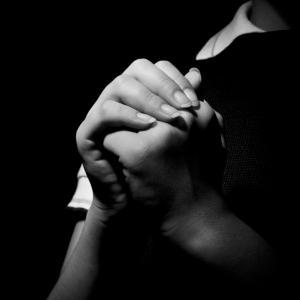
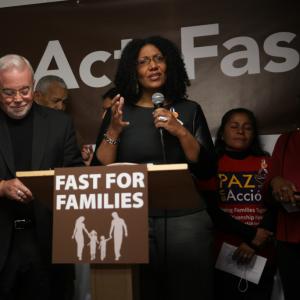

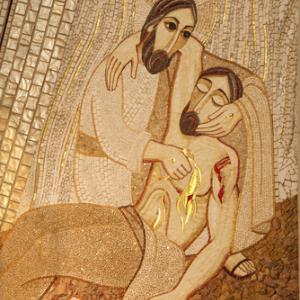
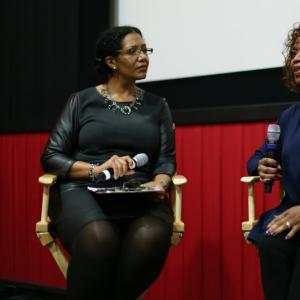

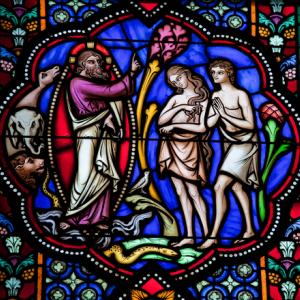
![By U.S. Information Agency, Press and Publications Service. [Public domain], via Wikimedia Commons [Public domain], via Wikimedia Commons](https://sojo.net/sites/default/files/styles/large_square/public/blog/View_of_Crowd_at_1963_March_on_Washington.jpg?itok=uVl6Im7w)

